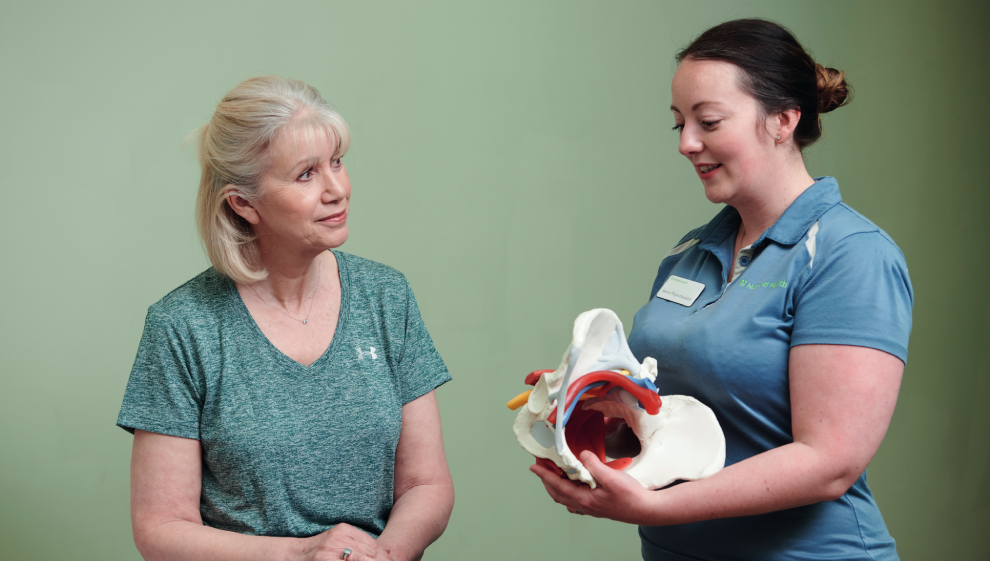Managing urinary incontinence | Expert tips for improved bladder control
- Overview
For many, summer is a period to let your hair down and enjoy the outdoors. However, for women who struggle to control their bladder, summer can often trigger feelings of anxiety. Broadly speaking, there are two main types of urinary incontinence: stress incontinence and urge incontinence.
Stress incontinence
This usually occurs when the bladder is under pressure by physical activity, such as sneezing, coughing and laughing. Pregnancy and childbirth can also cause this form of incontinence.
Urge incontinence
This is when you have a sudden and intense need to urinate, and often leads to unintentional leakage of urine. While it can occur at any point, it is more common as you age.
Speak to an expert

It's difficult to discuss concerns of a personal nature, but incontinence is likely to be more common than you think. Around one third of adults will experience some urinary problem at different stages of their lives.
To understand what type of incontinence you are suffering from, it’s best to book an appointment with your GP, who can review your symptoms and run a couple of routine tests to check there is no sign of infection. In some cases, you can however, have a combination of both incontinence issues.
Depending on your ability to control your bladder, you can resolve incontinence through various lifestyle changes.
6 tips to manage urinary incontinence:
- Reduce caffeine intake – Food and drink high in caffeine, such as chocolate, tea and coffee is one of the main triggers of an overactive bladder.
- Avoid certain alcohol – if you're at a BBQ, try and avoid certain drinks. Alcohol high in acidity, such as white wine, can irritate the bladder which can cause leakage as well as worsen other incontinence symptoms.
- Stay hydrated – it is important to stay hydrated all year round, particularly during hot weather. Many people with urinary incontinence think it is better to restrict their fluid intake; however, dehydration can irritate your bladder and can make your incontinence worse.
- Lose weight and consume a healthy diet – being overweight means you are more likely to weaken your pelvic floor muscles and experience problems with incontinence. Avoid foods containing a lot of salt and mix up your plate with a fresh salad instead.
- Exercise frequently – specific exercises can be beneficial in preventing urinary leaks. Pelvic floor exercises can strengthen the muscles around your bladder. Our women's health Physiotherapists can help treat a range of conditions including pelvic floor weakness. They will assist and advise you on the best course of action for your symptoms following a thorough assessment.
- Avoid smoking – smoking causes chronic coughing, which can damage the muscles of the pelvic floor and weaken your bladder.
It can be difficult to discuss urinary symptoms openly, but it is important for women to speak out, seek advice and take control of their bladder.
Authors
- Angela Birnie - Consultant Urologist at Nuffield Health Chichester Hospital
Last updated Monday 29 July 2024
First published on Thursday 30 May 2019
